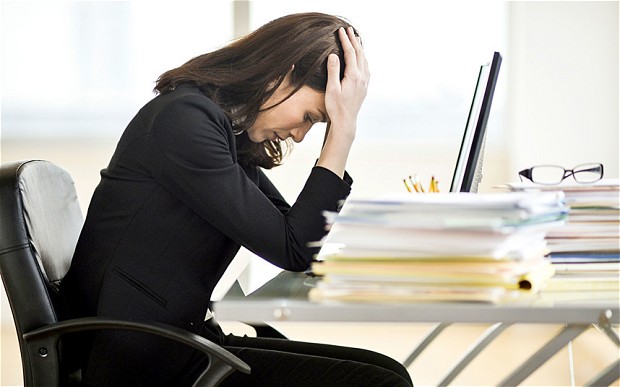In the UK, 79% of women report workplace stress compared with 66% of men. The top three stressors for working women are heavy workloads (17%), personal health (13%) and financial concerns (13%).
Basic needs, such as sleep and food, are part of the difference between the genders. While 78% of women have trouble sleeping, this is only a problem for 66% of men; only 27% of women believe they are eating a balanced diet, compared with 38% of men.
The so-called ‘sandwich generation’ – women aged 35 to 49 with childcare responsibilities and responsibilities about the care of their elderly parents –showed even higher rates: 87% say they are stressed at work, with 64% claiming to be in an ‘always on’ work environment, where they are expected to response to work emails in the evening or weekend. As the report states: ‘Given that this segment is the core talent group driving businesses, their general well-being will impact the way businesses operate.’
Dr Peter Mills, associate medical director, Cigna Europe, said employers need to know about this: ‘They need a strategy, but they seem to be leaving it up to their employees to deal with it.’
Organisational psychologist Samantha Smith talked of the sorts of actions that could help stressed employees deal with being overwhelmed by workplace responsibilities. ‘Learning mindfulness techniques can be very useful; a person can use them at work, but also at home if they want. Anecdotally I have a lot of examples of people – especially women struggling to balance their work and life — who have felt more in control using techniques that make boundaries between work and their home life.’
Asked what would most benefit their stress levels, it is interesting how common the thinking of employees is, whatever their age or stage in life.Flexible working hours is the clear choice for 29% of all surveyed as the best way of dealing with work stress, followed by increased work security and then special paid leave (such as stress level, birthday leave, etc). The only clearly millennial preference was 21% preferring chill-out rooms, compared with 19% of the total.
Overwork does seem to be part of the problem triggering the stress. During the same week, British energy supplier Love Energy Savings published a survey of 1000 which claimed that unpaid overtime was common in the UK workplace, particularly among younger workers. Over 40% of 18 to 24-year-old employees admit to working more than their contracted hours, a higher number than any other age group. A staggering 20 extra hours are worked by 8%.
With the mental and physicaleffects of workplace stress and overwork so clearly known now – depression, anxiety, reduced immunity, higher blood pressure, digestion problems, headaches, muscular problems, substance abuse – it is, as the Cigna wellbeing report indicated, essential for employers to wake up to what they are losing in their workforces by allowing this situation to keep getting worse.
Article by Louise Chunn









